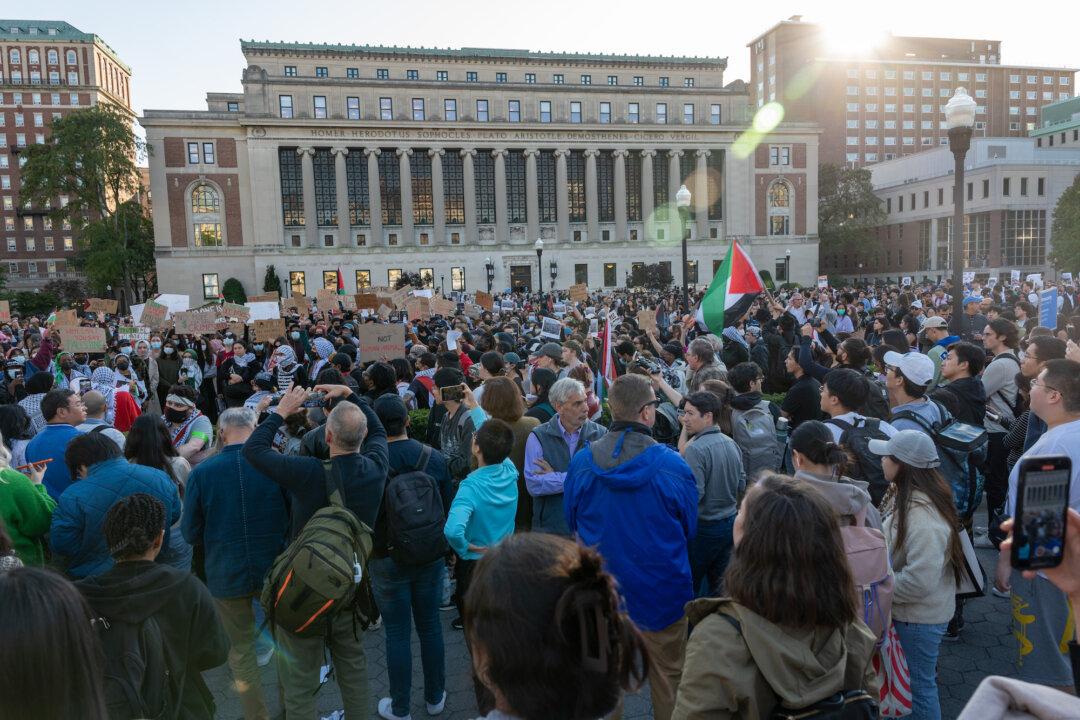Columbia University has suspended two student organizations, citing repeated violations of university policies related to campus protests calling for a cease-fire in the Israel–Hamas conflict in Gaza.
The university’s vice president, Gerald Rosberg, who is also chair of the Special Committee on Campus Safety, announced the suspension of Students for Justice in Palestine (SJP) and Jewish Voice for Peace (JVP), which described itself as a progressive anti-Zionist group, through the end of the fall semester.





